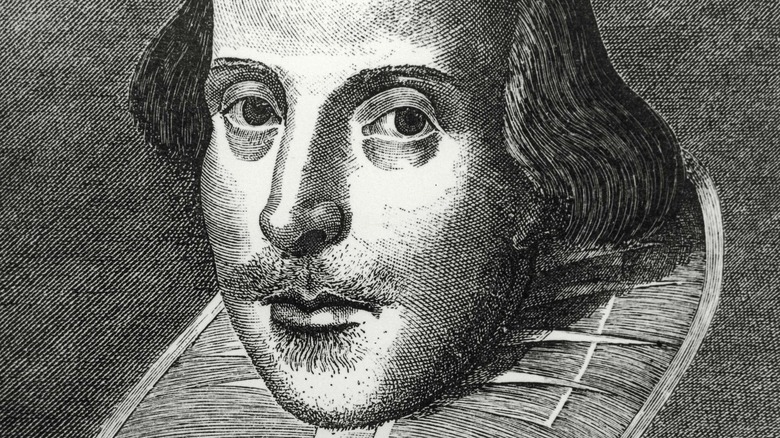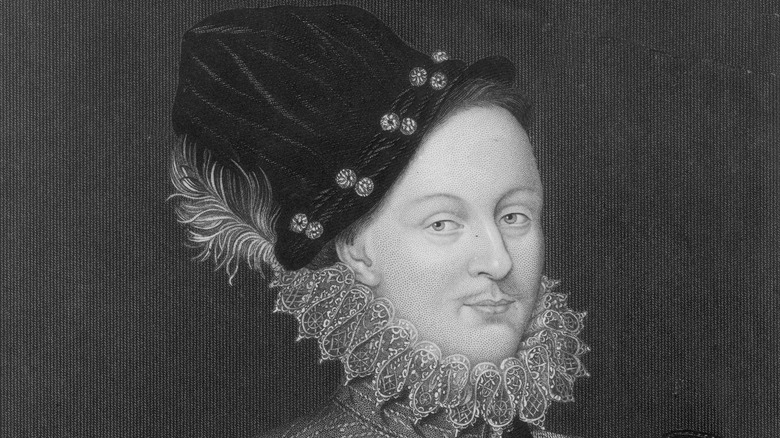The Shakespeare Conspiracy That Would Change Everything
Conspiracy theories positing that someone other than William Shakespeare wrote his famous plays have been around for centuries, and continue to circulate even today. As reported by Scientific Feed, clergyman and literary scholar James Wilmot is believed to be the original anti-Shakespeare theorist. Starting in 1785, Wilmot devoted much of his time attempting to prove Shakespeare had stolen his work from another writer. Wilmot became the first well-known "anti-Stratfordian," the name given to those who doubt Shakespeare's authorship, which comes from the name of Shakespeare's home town, Stratford-upon-Avon. Wilmot was reportedly so obsessed with besmirching Shakespeare's reputation that he produced sloppy, easily debunked research, besmirching his own reputation instead.
Wilmot never went so far as to propose the actual writer behind the works credited to William Shakespeare, but future anti-Stratfordians had no such qualms. One popular theory credits Francis Bacon as "the real Shakespeare," with Wilmot's colleague James Corton Cowell giving a series of lectures saying as much in the early 1800s. Another pro-Bacon theorist was Mark Twain, who (per the Hartford Courant) wrote a humorous essay in 1909 in which he explored the various conspiracy theories surrounding Shakespeare and authorship and came down tentatively on the side of Francis Bacon. Another popular favorite among anti-Stratfordians is Edward de Vere, the Earl of Oxford. In 2011, as reported by The Washington Post, the movie "Anonymous" came out in theaters, which dramatized the theory of how de Vere wrote the plays credited to William Shakespeare.
Are Shakespearian conspiracy theories fueled by snobbery?
As The Washington Post pointed out, Edward de Vere (shown above) had died by the time several of Shakespeare's plays premiered, including "Antony and Cleopatra," "The Tempest," and "A Winter's Tale." Nevertheless, the conspiracy theory lives on. In 2019, The New Yorker published an article reporting that the late Supreme Court Justices John Paul Stevens and Antonin Scalia both believed that de Vere had written the work attributed to Shakespeare. In 2009 The Wall Street Journal wrote about Stevens' beliefs and included a quote in which he'd scoffed at the idea that "a commoner can be such a brilliant writer. Even though there is no Santa Claus, it's still a wonderful myth."
This seems to be a common thread among Shakespeare conspiracy theorists. Inside Hook notes that the snobbery that leads people to believe that a "commoner" with a lack of a prestigious education could possibly be a great writer is one reason that conspiracy theories live on. Of course, the article points out, even a grade school student from Shakespeare's time would have read Cicero, Virgil, Erasmus, and others in Latin, and Shakespeare had access to maps, which explains why his plays include discussions of continental Europe's geography, despite Shakespeare never leaving England. Furthermore, as a famous actor, William Shakespeare was very well known in cosmopolitan London and had a wide circle of friends, colleagues, and collaborators, suggesting that someone would have known and spread the word had he been a total fraud.

